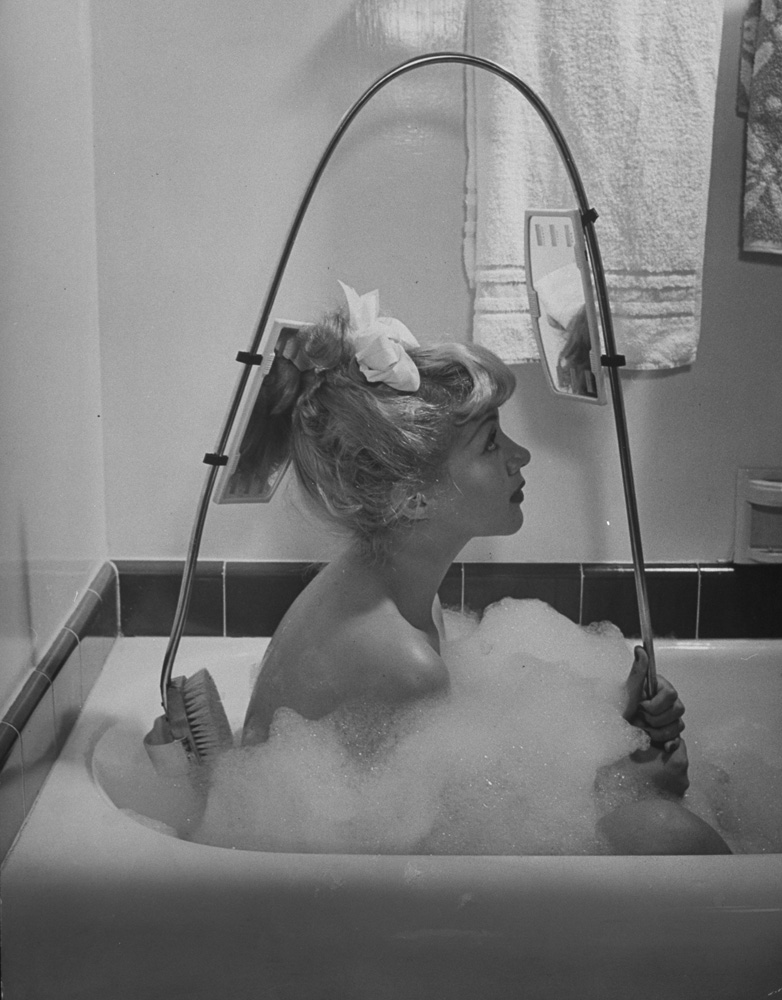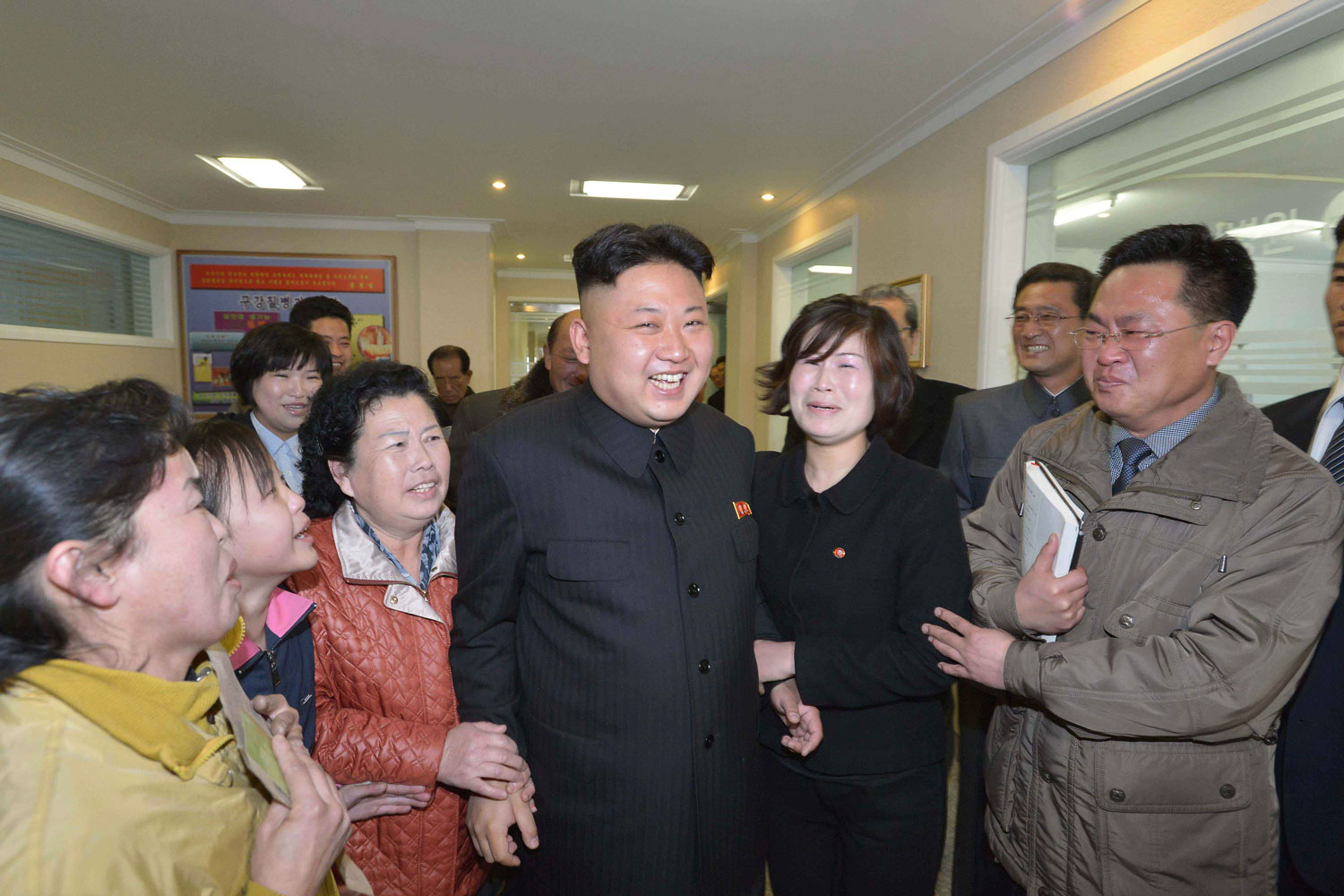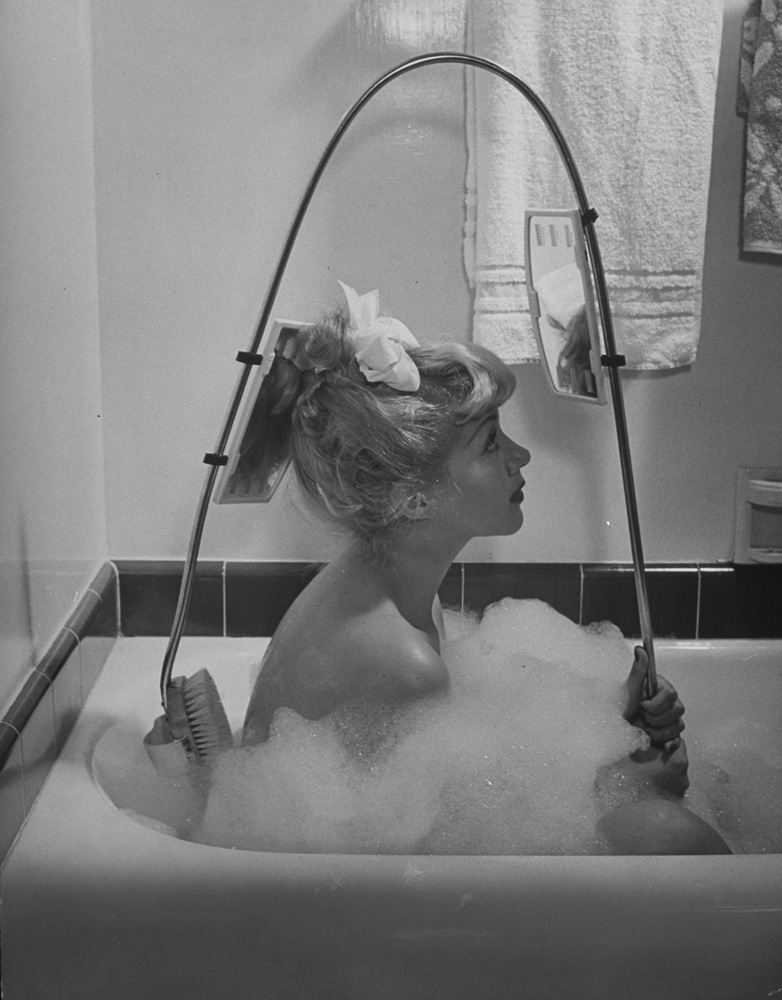
Every so often, someone invents a new thingamajig that is actually, undeniably useful—something that fills a universal need (or, at the very least, a universal want): the light bulb; the car; the telephone—and the smartphone. But what happens to inventions that, while devilishly imaginative, are never deemed quite essential to society at large?
We’ve all seen contraptions on infomercials: a chair that helps you “exercise” by swiveling while you sit; a blanket with sleeves that looks suspiciously like a robe worn backwards. There might be nothing new under the sun—but that doesn’t stop people from inventing endless variations on ancient themes.
Take the scene above, for example. The photograph appeared in LIFE in 1947, alongside numerous other examples of “wild new brushes” designed to “make housewives bristle.” The brush featured here is equipped with two mirrors so a user can see exactly where, and what, he or she is scrubbing. The LIFE article claimed that such innovative designs “could easily be the answer to a lazy housewife’s dream” and were ingeniously crafted “to take the stoop, squat, and backache out of ordinary housework.” (Take that, lazy housewives!)
While they were made seven decades ago, the pictures above and below nevertheless nicely convey both the creativity and the absurdity inherent in a consumerist culture. For instance, we now live in a world with an overabundance of apps, ostensibly designed to increase productivity and facilitate communication, transportation, digestion, you name it. Obviously, we appreciate things that make our lives easier—but where do we draw the line between the convenient and the ridiculous? Between simplification and a classic Rube Goldberg device?
That, of course, is for you, dear consumer, to decide.

Katie Yee is a native New Yorker, an undergraduate studying Literature and Psychology at Bennington College, and an editorial assistant at Tweed’s Magazine of Literature & Art.

More Must-Reads from TIME
- Donald Trump Is TIME's 2024 Person of the Year
- Why We Chose Trump as Person of the Year
- Is Intermittent Fasting Good or Bad for You?
- The 100 Must-Read Books of 2024
- The 20 Best Christmas TV Episodes
- Column: If Optimism Feels Ridiculous Now, Try Hope
- The Future of Climate Action Is Trade Policy
- Merle Bombardieri Is Helping People Make the Baby Decision
Contact us at letters@time.com